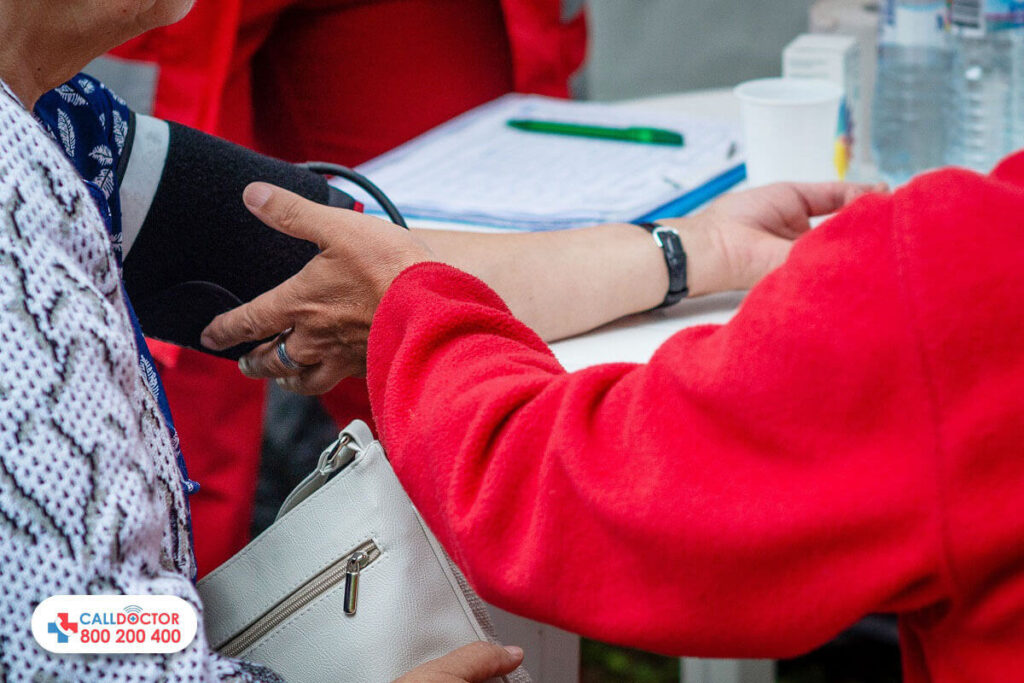Everyone’s life depends on their level of health. Being fit and healthy requires routine health examinations and lab testing. You can obtain lab testing in Dubai from the comfort of your home if an unexpected medical ailment or allergy attack arises. So, what scientific tests can you use to diagnose your sickness, and under what circumstances do you need them? This blog is based on information about Call Doctor’s lab testing at-home services.
Lab tests are valuable components of a comprehensive evaluation for a substance use disorder. There are numerous ethical and legal concerns with pharmacy services and lab tests in general populations.
Relevance of laboratory tests
The significance of the lab test is as follows:
- To identify the disease.
- To keep an eye on health problems.
- Early diagnoses of diseases.
Any medical workup begins with the results of the following tests. Moreover, compare the average values for your age, sex, and personal circumstances to your test results. In addition, when you get lab tests at home from our qualified physicians, who keep an eye on how your disease activity and overall health change.
Why Do We Screen?
Even if you haven’t displayed symptoms, screening is conducted to find possible health issues or infections. It improves early detection and enables preventative steps to be performed to lower the chance of contracting diseases or being infected. Your condition can be successfully treated if caught early. To determine if you are sick or not, screening is done. It serves as a non-diagnostic method to find potential health risks. The screening findings must be more accurate, but our professionals advise scheduling the testing for a suitable time of year. When performed on people not at risk for infection, some screening tests can result in problems.
We provide a wide variety of laboratory diagnoses through our lab service. A qualified team of us allows for at-home testing and screening services. Among the tests and screening techniques used are:
- Analyze allergies
- Blood Sugar
- Vital signs

Diabetes:
Uncontrolled or undiagnosed diabetes can result in heart disease, blindness, and other disabilities, despite not being fatal. A fasting blood sugar level test, which requires you to fast for eight to ten hours beforehand, can detect diabetes.
Hyperlipidemia (high cholesterol):
Too much cholesterol in your body can narrow your arteries and raise your heart disease and stroke risk. A fasting lipids blood test is to check your cholesterol levels. You will also need to fast for eight to ten hours before your test, just like you do for your blood sugar.
Hypertension (high blood pressure):
Untreated and unchecked, high blood pressure can cause long-term harm to your body, including heart disease, stroke, and kidney failure. The blood pressure test is usually included in health screening packages.
Obesity:
People with obesity are more likely to get diabetes, high cholesterol (hyperlipidemia), high blood pressure, and some cancers. You will also lower your risk of these diseases if you maintain a healthy BMI (Body Mass Index). Lab tests and regular health checks will help you to stay fit and healthy.
Colorectal Cancer in Adults Over 50:
The Faecal Occult Blood Test (FOBT) or Faecal Immunochemical Test (FIT) is typically used to diagnose colorectal cancer, the most common cancer among men and the second most common among women. You can check the possible sign of colorectal cancer in your stools, which will be tested for hidden blood. Our doctor may order additional tests, such as a colonoscopy, to confirm the presence of colorectal cancer if your test returns positive.

How does a blood test work?
Regular blood tests are one of the most important ways to monitor physical health. You can see how your body changes over time and make informed decisions about your health by getting tested regularly.
What do blood tests reveal?
Your doctor can use blood tests to learn how your body’s organs work. Your thyroid, liver, or kidneys are three examples of organs whose problems can be seen in a blood test. Moreover, these are to use blood tests for indicators of diseases and health conditions like:
- Cancer
- Diabetes
- HIV
- Anemia
- Heart disease
Even if a person does not have heart disease, a blood test at home can show if they might be at risk. Other blood tests can determine how well your blood clots or whether your medications are working correctly.
The most widely used laboratory test in the United Arab Emirates is the complete blood count (CBC), which is used to examine platelets, white blood cells, and red blood cells (RBCs). Many people with systemic lupus have CBCs (Complete Blood Count) that are off.
Blood Chemistry Panel:
A blood chemistry testing panel is a standard test that looks at 7 to 25 blood components. Your kidneys, blood glucose, cholesterol, liver, and thyroid are just a few vital organs and substances that can be studied through these tests.
TYPES OF LAB TESTS
The necessary laboratory tests offered by us for different patients with various diseases and conditions are
- Complete blood count
- PCR (Polymerase Chain Reaction) test
- Blood Group
- Blood Sugar
- Liver functional test
- ECG
- Cardiac Risk Marker
- Iron Deficiency
- Liver Profile
- Kidney Profile
- Lipid Profile
- Hormones Profile
- Vitamin Profile
- Pancreas Profile
- Arthritis Profile
- Diabetic Screen
- Electrolytes Profile
- CBC
- S. Calcium
- Vitamin D
- Iron
- TSH (Thyroid Stimulating Hormone)
- Complete Urine Analysis
- Complete Stool Analysis

Services For Screening and Lab Tests in Dubai
Lab examinations and screenings employ specialist medical equipment to examine the root causes of infections. The diagnosis is made using blood, urine, or other tissue samples. After consulting with our team of specialists, you may choose from a wide range of lab testing & screening services at home in Dubai.
Our practitioners employ thorough testing and screening techniques when diagnosing, following, and preventing your disease. At Call Doctor, We educate you on maintaining your healthcare and defending against infections.




